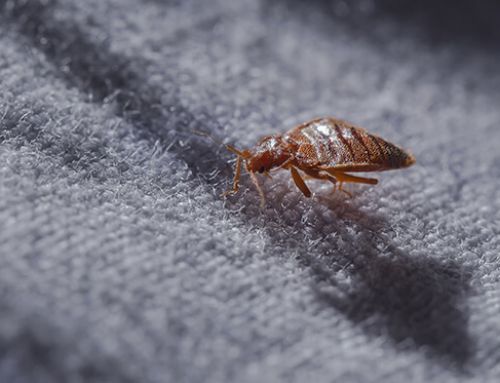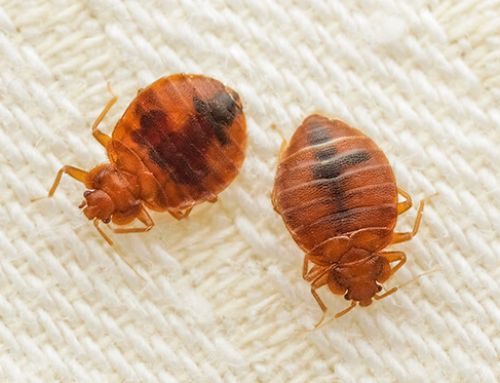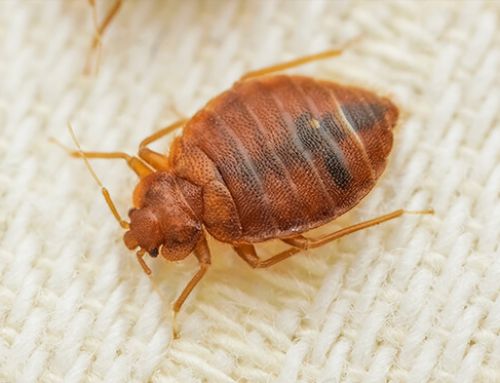Once bedbugs invade your home or building, they will spread quickly. Educate yourself on these tiny insects to help prevent them from future infestation, and learn how you can eradicate them completely.
Q. What are bedbugs?
A. Bedbugs are parasitic insects that feed exclusively on blood. Cimex lectularius is the most common form of bedbug and it plays a major role in human health due to its ability to transfer disease. The name “bedbug” derives from their preferred habitat: warm houses, especially near or inside beds, bedding or other sleep areas.
Q. What Do They Look Like?
A. Bedbugs are small, flat wingless insects that are reddish-brown in color and approximately one-quarter inch long, about the size and shape of a small apple seed.
Q. How Come It’s So Hard To See Them?
A. Besides the fact that they are quite small, they are also nocturnal, so they wait until it’s dark to creep out for their meals, which is why it can take so long to discover you’ve been sharing your home with them.
Q. How Do Bedbugs Get Into My Home?
A. Bedbugs are hitchhikers. You can bring them home or take them to other locations. They move from one site to another by traveling on clothing, luggage, furniture, bedding and boxes. Depending on your situation and personal scenario, bedbugs can get into your home through a variety of avenues. Here are just a few ways:
Vacations and Business Trips: The most common way to bring bedbugs home is from a business trip or vacation. They can hitch a ride in luggage, purses, backpacks, or other items placed on soft or upholstered surfaces and beds.
Used Furniture: As mentioned earlier, bedbugs like to hitch a ride on soft, upholstered surfaces, so if you are in the habit of buying or picking up used or discarded furniture you could be inviting them to come and stay awhile. They especially love to hang out in used beds, mattress, and/or bedding.
Infested Areas: Bedbug infestations are more common in crowded lodgings that experience high turnover in occupancy, such as: apartment complexes, dorm rooms, homeless shelters, hotels, cruise ships, and public transportation. They can travel between rooms and even floors in multi-unit buildings, such as apartment complexes, condos, and hotels.
Q. What should you do about bedbug issues?
A. If you think or know you have bedbugs, it is very important that you act swiftly. Bedbugs are extremely difficult to control, especially if they are not caught during the early stages of the infestation. Contact a bedbug eradication specialist as soon as possible.



